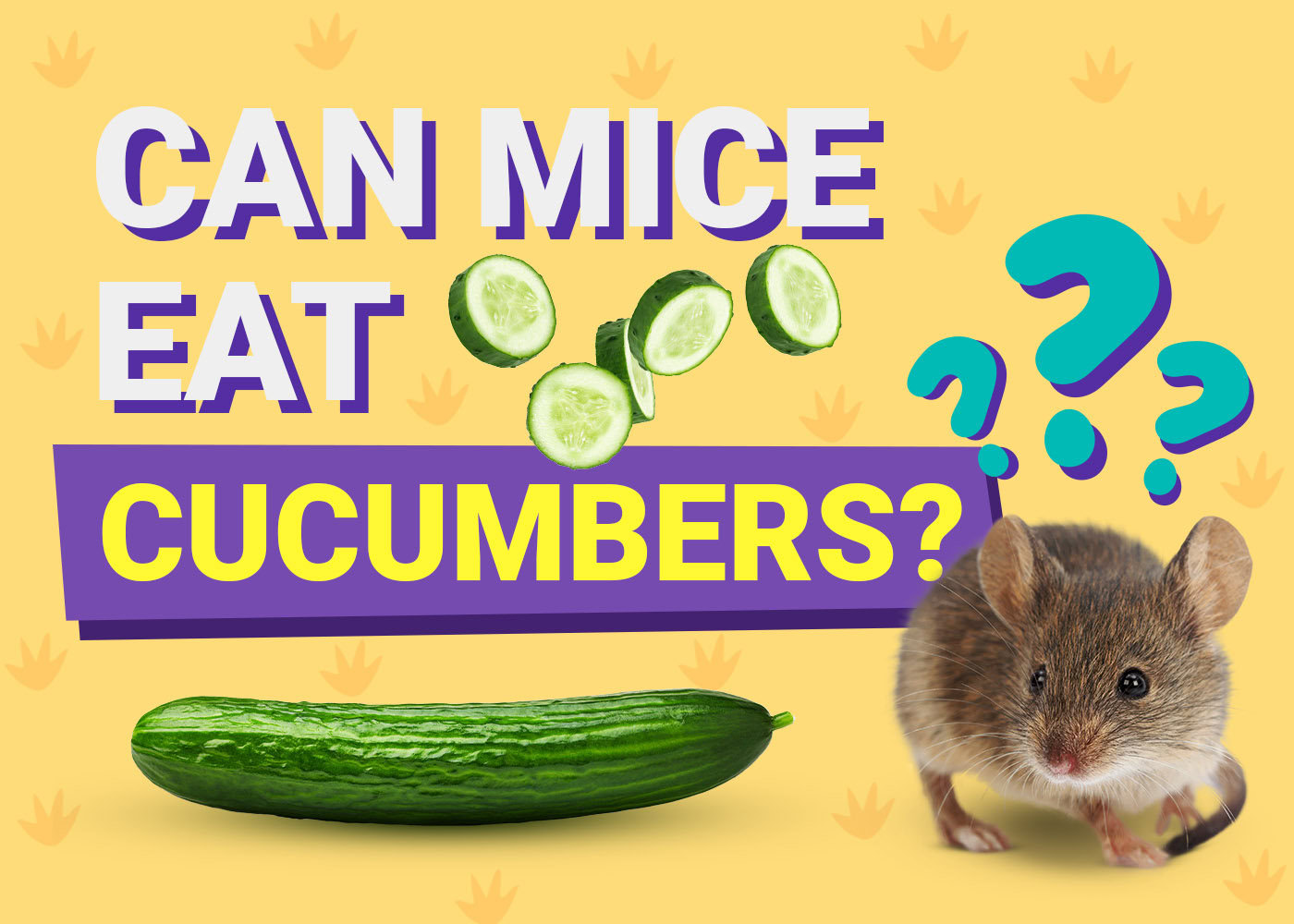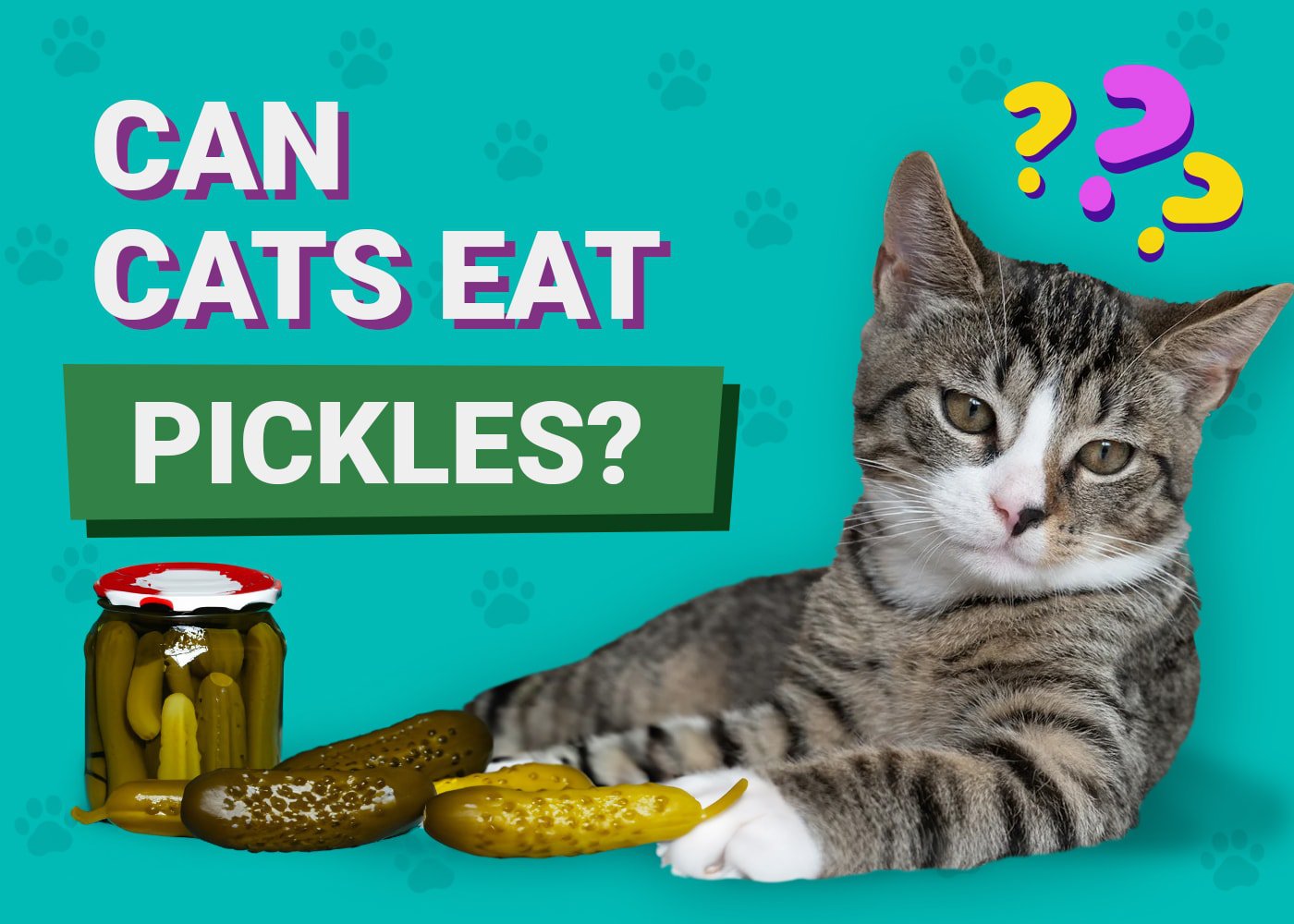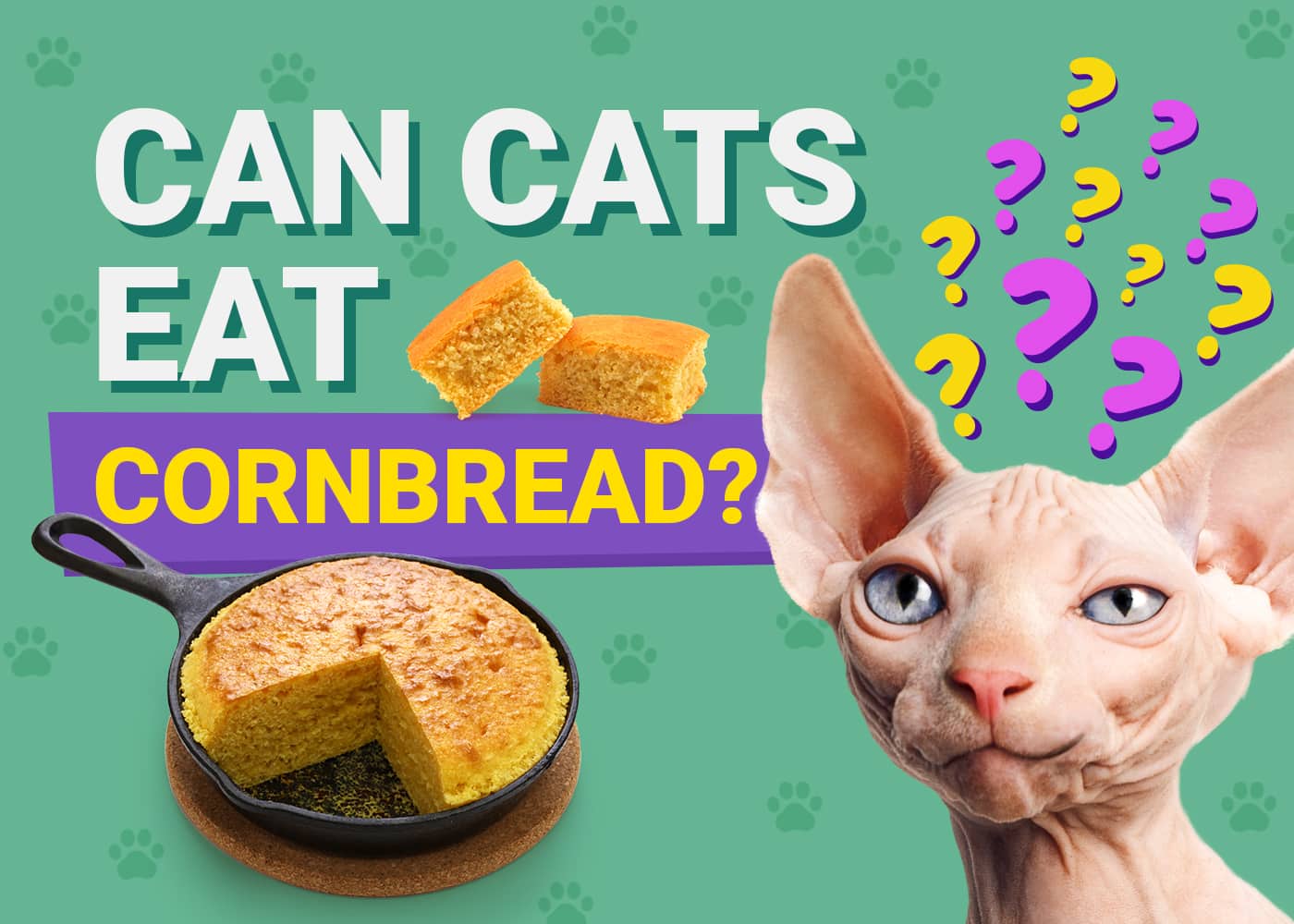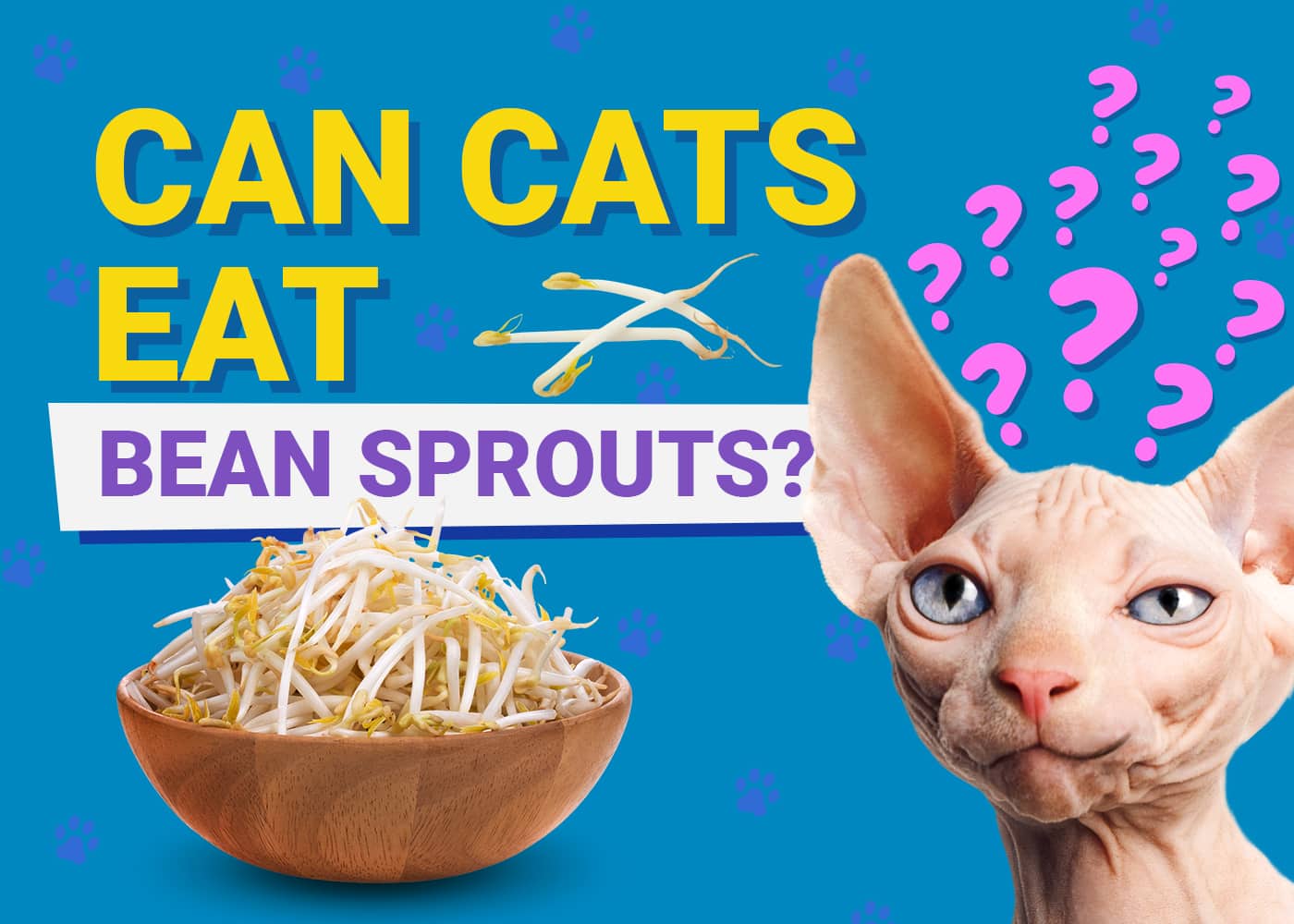VET APPROVED

The information is current and up-to-date in accordance with the latest veterinarian research.
Learn more »When you picture a mouse eating, chances are you visualize a cartoon mouse nibbling a block of cheese or a pest creeping out of holes in the wall, gnawing holes in cereal boxes. The truth is, pet mice need a balanced diet made up of both commercial rodent food and fresh food to stay healthy.
Of course, you want to be sure you’re only offering your mouse safe and healthy foods. What vegetables are okay for mice? Can mice eat cucumbers, for example? Yes, mice can eat cucumbers as a supplement to their primary diet.
In this article, we’ll discuss how to successfully incorporate vegetables like cucumbers into a mouse’s diet as well as some vegetables and other foods you should never feed your mice.
 Feeding Your Mouse: The Basics
Feeding Your Mouse: The Basics
About 50 to 75% of your mouse’s daily diet should be made up of commercial rodent food, either in pellet or block form. Mice are omnivores, so these foods should contain both plant and animal nutrition sources. It’s best to opt for a food made specifically for pet mice (not laboratory mice).
Pellets are preferred over a block because mice are foraging scavengers, and placing pellets around their enclosure encourages them to search for different foods in different places. In turn, this promotes exercise and offers them enrichment.
In addition to their commercial diet, mice benefit from a small portion of a seed and grain mix (also scattered strategically around their enclosure). They also benefit from the inclusion of a variety of fruits and vegetables to keep them healthy. It’s best to rotate the types of fresh food you offer to keep things interesting for your mice and give them access to as many different nutrients as possible.
Unlike the aforementioned pellets, seeds, and grains, you want to place fresh food in an area where you can keep an eye on things. You don’t want your mouse taking the fresh food into their den and hoarding it, as it will quickly sludge and spoil. In turn, this may lead to other problems.
Cucumbers can be one of the vegetables you feed your mice, and we’ll talk about why next.
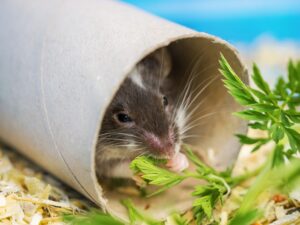
Why Cucumbers Are Good for Mice
Cucumbers would definitely take a backseat over the dietary mainstays of the dry food options for your mouse. This is mostly because the dry food options (pellets, seeds, grains) are more nutritionally appropriate for a mouse and also allow your mouse to properly chew their food (which helps keep their teeth in check).
However, cucumbers are definitely beneficial for mice. The main appeal of cucumbers and other fruits and vegetables is that they have been shown to improve the gut microbiome of inappropriately fed mice and help them manage their weight better1.
We definitely don’t encourage feeding your mice an inappropriate diet to induce weight gain only to then feed them cucumbers and other fresh produce (which was the procedure of the study). However, the main takeaway from the study is that in appropriate portions, the inclusion of fresh produce (including cucumber) has shown to be beneficial for a mouse’s gut microbiome and helps them maintain a healthy weight.
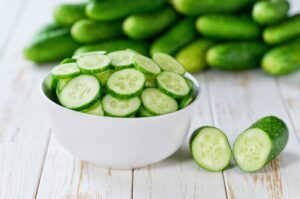
How to Feed Cucumbers to Your Mouse
If most of a mouse’s diet should be made up of block or pellet food, how much cucumber should you feed, and how often?
As a general rule, mice should be offered a few pieces of fresh fruits and vegetables every day. Again, you don’t want your mouse to fill up on these other foods and not eat enough of the more nutritionally balanced rodent food. Fruits and vegetables are meant to supplement the primary diet, not serve as the primary food source.
Cucumbers can be offered peeled or unpeeled, depending on what your mouse prefers. Mice are natural foragers so scattering some food, like cucumbers, throughout their cage allows them to perform this behavior.
Clean up any uneaten fresh food—including cucumbers—at the end of each day so they don’t spoil.
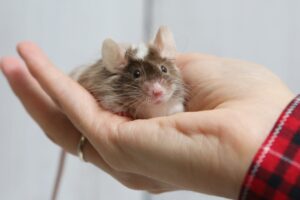
Other Dos and Don’ts of Feeding Mice
Besides cucumbers, some other fresh fruits and vegetables you can offer your mouse include:
Occasional treats of seeds, crackers, or cereal are okay, but don’t feed these too often since they can be high in fat or sugar and don’t offer much nutritional value.
Some foods, even some fruits and vegetables, shouldn’t be fed to mice because they are unhealthy or dangerous. A few of these foods are:
- Grapes and raisins
- Chocolate
- Salty or spicy snacks
- Onions
Before you offer any new food to your mice, double-check that it’s safe for them to eat. Your veterinarian is a good resource for this information. You should also consult your vet if your mouse accidentally eats something you know isn’t good for them or if you have any concerns about their overall health.
 Conclusion
Conclusion
Mice are adorable and easy to care for pets but that doesn’t mean you can ignore the few needs that they do have. Part of responsible pet ownership is making sure your pet, large or small, gets the food they need to stay healthy. For mice, that means feeding a quality, rodent-specific food along with fresh fruits and vegetables. Cucumbers are just one of the many vegetables your mouse may enjoy as part of a balanced diet.
Featured Image Credit: Alexei Chizhov, Pixabay
